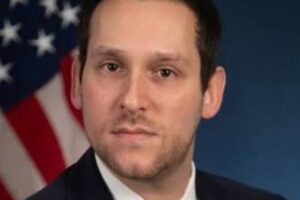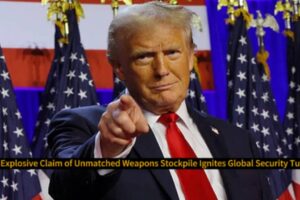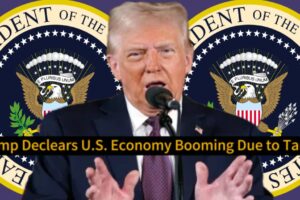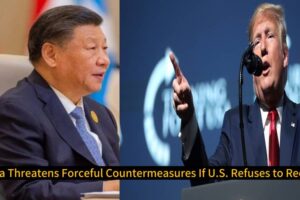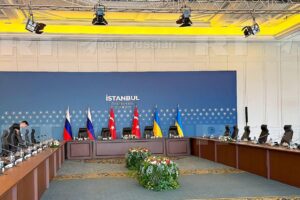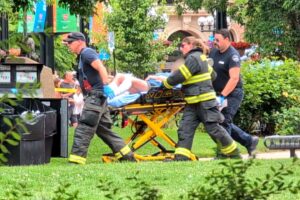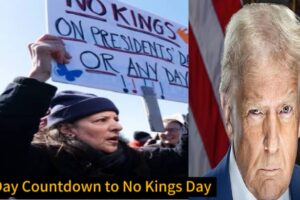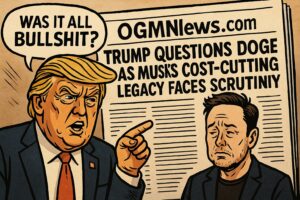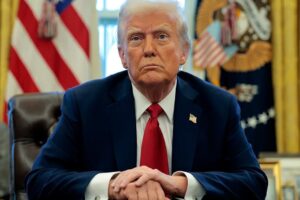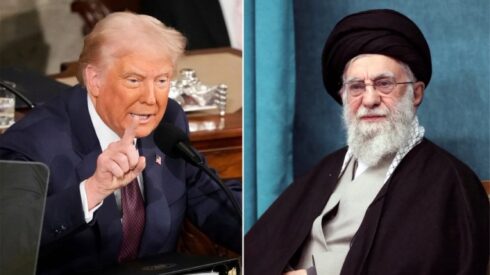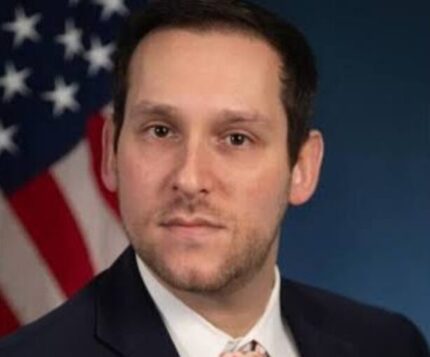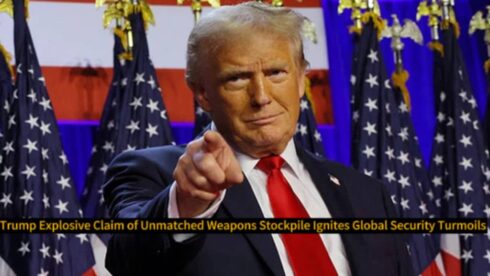The United States and Iran have made “very good progress” in their second round of nuclear negotiations, held Saturday at the Omani Embassy in Rome’s Camilluccia neighborhood. U.S. Middle East envoy and billionaire Steve Witkoff met directly with Iranian Foreign Minister Abbas Araghchi, with mediation provided by Omani Foreign Minister Badr al-Busaidi.
A U.S. official speaking to opitanglobamedia news confirmed that after four hours of intense dialogue, the two sides agreed to continue negotiations, scheduling another meeting for April 26 in Oman. “We are grateful to our Omani partners for facilitating these talks and to our Italian partners for hosting us today,” the official stated. The progress in Rome follows initial indirect discussions held in Muscat, signaling a cautious but growing momentum toward a potential agreement.
Araghchi, speaking to Iranian state television, described the talks as having been conducted in a “constructive environment” and expressed hope that forthcoming technical meetings would further advance discussions. “I hope that we will be in a better position after the technical talks,” he added.
Strategic Stakes: Trump’s Clear Warning and the Path Ahead
Ahead of the Rome talks, National Security Council spokesperson Brian Hughes reiterated former President Donald Trump’s firm stance: Iran “cannot have a nuclear weapon,” and “all options remain on the table.” Hughes emphasized that while President Trump authorized direct and indirect negotiations, the process could not continue indefinitely without clear outcomes.
“The Trump administration’s entire national security leadership team is committed to the president’s posture on Iran to ensure peace and stability in the Middle East and security here at home,” Hughes stated. Trump’s uncompromising tone underlines the strategic stakes involved: without a breakthrough, the risk of military confrontation or Iran’s acceleration toward nuclear capability remains dangerously high.
On Friday, Trump succinctly summarized his position: “I’m for stopping Iran, very simply, from having a nuclear weapon. I want Iran to be great and prosperous and terrific.” His remarks highlight the administration’s delicate balancing act—seeking to curb Iran’s nuclear ambitions while leaving the door open to broader diplomatic engagement.
Role of Oman and Italy: Facilitators of a Fragile Dialogue
Oman has again emerged as a critical mediator in Middle Eastern diplomacy, hosting the initial round of talks in Muscat and actively facilitating the ongoing dialogue in Rome. Oman’s Foreign Ministry issued a statement on X, expressing hope that negotiations would lead to Iran being “completely free of nuclear weapons and sanctions, while maintaining its ability to develop peaceful nuclear energy.”
Italy also played a supporting role, with Foreign Minister Antonio Tajani meeting Araghchi prior to the Rome discussions. Tajani reaffirmed Italy’s commitment to assist the process, noting, “A diplomatic deal is built patiently, day after day, with dialogue and mutual respect.” Italy’s willingness to host future technical-level meetings demonstrates broader European interest in a stable resolution to the nuclear standoff.
The involvement of the United Nations’ International Atomic Energy Agency (IAEA) further bolsters the credibility of the talks. IAEA head Rafael Mariano Grossi met with Tajani in Rome, underscoring the agency’s likely role in verifying Iranian compliance with any prospective agreement, just as it did during the 2015 Joint Comprehensive Plan of Action (JCPOA).
History and High Stakes: Decades of Hostility and a Risky Future for US and Iran relationship
The very existence of direct and indirect U.S.-Iranian talks marks a historic moment given the deeply entrenched hostility between the two nations since the 1979 Islamic Revolution and the U.S. Embassy hostage crisis. The talks are a fragile step toward rebuilding trust, especially after Trump’s unilateral withdrawal from the 2015 nuclear accord in 2018.
Years of mutual hostility, attacks, and failed negotiations have only heightened the risks. Without progress, observers warn of a possible U.S. or Israeli military strike on Iran’s nuclear infrastructure, or Iran following through on threats to pursue atomic weapons capabilities. Iranian Foreign Ministry spokesman Esmail Baghaei emphasized that diplomacy remains Iran’s chosen path, acknowledging the difficult road ahead while expressing commitment to a negotiated solution.
“We are aware that it is not a smooth path, but we take every step with open eyes, relying also on the past experiences,” Baghaei said. His remarks reflect Tehran’s attempt to project both caution and seriousness as negotiations move forward.
Broader Context: Middle East Tensions and Global Implications
The negotiations come at a particularly volatile moment in the Middle East, with tensions inflamed by the ongoing Israel-Hamas conflict in Gaza. The broader regional instability adds urgency—and complexity—to the nuclear talks, with any agreement likely influencing the entire strategic landscape.
Diplomats and analysts warn that failure to reach an agreement could exacerbate an already combustible situation, potentially sparking broader conflict. Conversely, a successful deal could pave the way for easing sanctions on Iran, reintegrating it into the global economy, and reducing one of the world’s most dangerous nuclear flashpoints.
The coming weeks will be critical. Technical experts are expected to convene ahead of the next full negotiating session in Oman, working through the details that could make or break any final agreement. Despite significant challenges, both sides appear, for now, committed to pursuing diplomacy.


